Lilinova needed to think outside the box. And that box had been her whole life growing up in a castle tower.
She took clothes from the servants quarters, her own lute, and...that was it. She had enough talent to make it as a traveling minstrel—right? She had a grand total of one (1) skill, and that was music. At least it would be a believable cover.
Her mother’s only portrait hung in the grand parlor over the mantle, and bringing along a painting that was larger than her four-poster bed seemed too ambitious.
As she snuck out the back gate by the stables, Lilinova went over her plan.
Step one: escape her father so he couldn’t send her to die in three days.
That one was practically complete. She was…at least out of the castle. She would find a place to hold up and reason through her complicated feelings, and then just not die. Easy.
Step two: Stop the Dark Duke from invading Tresterville and killing her.
Slightly more difficult, but…she was working on it.
The fact that she had to face was that she, Princess Lilinova of Tresterville, had absolutely no skills. Short of sightreading music and singing when no one was listening: Lilinova had never actually done anything in her whole life!
Well, now she was going to steal some clothes and run away from home. So she had that. Lilinova the criminal mastermind.
On a spiteful whim, she requested her father’s horse. But she had never saddled her own horse before.
So she sat quietly while her gear was assembled for her. No one asked her any questions, and no one would risk telling her father that anything out of the ordinary had happened if they knew what was good for them. Such a trivial matter, the king would surely say—moments before beheading the messenger who dared interrupt.
The stable hand even brought her a saddle block to mount up with.
She adjusted her riding pants—nothing like the silks and satins she had worn her whole life—and took the servant’s gate out into the city.
The streets of Tresterville were louder than Lilinova remembered, and more crowded. More than once someone reached up, begging her for money or even a piece of bread.
Lilinova hadn’t brought money with her.
Or food, for that matter.
She added “botching plans” to her skillset.
A child pulled at her cloak and Lilinova realized with sudden clarity that she had worn her own cloak, as it was the only one she owned. So even with her stolen clothes, she wore the emblem of her family on her back.
Lilinova unclasped the heavy ornamental cloak and let it fall into the child’s arms and smiled her most reassuring smile, which the child returned with a gap-toothed grin.
Then he ran away with her cloak into the crowds.
Around her, a few people laughed.
“You got scammed, bard.” A man missing an eye and more than a few teeth shook his head at her. “Shoulda kept that and made a pretty coin off it!”
He had a point, not that Lili would admit it.
“I’m happy to give to a child in need. I’m a musician,” Lilinova said with more confidence than she felt. “I’ll find a way to make do.”
“I bet you will!” The man laughed and Lili hurried away, embarrassed for a variety of reasons.
The farther from the main square she rode, the more poor and destitute people came to watch her go by. She found herself riding faster, soon galloping out a city gate and into the forest to escape their oppressive eyes asking again and again why she wasn’t helping them.
How could she possibly help them? She had nothing even for herself.
She rode deep into the forest until the smells of cooking, the sound of metal against metal, and the hulking walls of stone were replaced by green dappled canopies, the scent of fresh loam, and the sounds of birds and crickets.
Only when her horse began to wheeze did Lilinova allow him to slow and gave both of them a break.
They had galloped far, but hadn’t managed to outrun her uselessness.
She let herself sink into the crook of large tree roots, her father’s horse investigating some long grass by her side while she swung her lute into her lap.Without his trappings, the royal warhorse looked like no more than a well built animal, and she herself without the crest of Tresterville looked like nothing more than a weary traveller.
Which begged the question of who they were without the ornaments that had defined them both.
Her father had never named his favored mount, calling it “my horse” when necessary and needing no further clarification.
“Silky,” she tried, and the horse continued to eat, “Silver. Metalo. Neigh-neigh. Rob.”
The horse looked up.
In his defense, she did steal him. It was a very “Rob” thing to do.
He went back to eating.
“Rob it is.”
She plucked a melancholy tune on her lute, a song that allowed her to wallow in directionless misery. She strummed mournfully and the horse’s head came up sharply.
She didn’t appreciate his criticism.
But then a hand closed around her wrist and a warrior dressed head to toe in black yanked her to her feet, sending her lute into the dirt, strings down, with a harsh twang.
“That,” said a deep, menacing voice with a hint of gravel, “is a Tresterville song.” He had a sneer in his tone, like the very name of her country was an insult.
The hand on her wrist ground her bones together, unrelenting as she tried to pull away from him.
“And if it is?” She willed her shaky voice to stabilize. “Is that a problem, good sir?”
“Don’t give me that,” he said, his hand on her wrist tightening. “As you know, to learn that song you would have had to live in Tresterville.”
Lili finally took in his appearance: the black matte armor, the sharp lines of his helmet, the gold trim running down each piece of his ensemble. He was a good head taller than her, with broad but not hulking shoulders made more intimidating by the black pauldrons with their gold-pointed tips. His helmet obscured his face entirely.
The soldier was from Neilsland.
“I have no quarrel with Neilsland.” Yet, she didn’t say. “I am but a travelling minstrel.”
“You must be well paid to be riding a Tresterville warhorse.” He gestured with a flick of his free hand to the animal in question, who showed as much loyalty to Lilinova as her father had by continuing to eat grass casually.
“What are you implying, kind sir?” Lilinova put as much ice into her voice as she could.
He examined her for a moment, and she could feel his stare like a weight, though she could only see the barest glimmer of his eyes through the visor. He tilted his head.
“You’re almost pretty…for a spy.”
Lili jolted in his grip. For his information, she was very pretty and she was not a spy.
She recovered quickly, wittily responding, “I’m no spy!”
“Which is precisely what a spy would say.” He jerked her hand forward, pulling her out into the open. “Even a pretty one.”
She tamped down her indignation as best she could, though the tone she took with him was definitely sour. “Make up your mind, kind sir. Is this minstrel ‘almost pretty’ or by your own admission ‘pretty’? Regardless, you have no proof I am from Tresterville.”
“You also,” he told her dryly, his voice oddly familiar but his tone entirely more amused, “have a Tresterville accent.”
That, Lilinova had to admit to herself, was a bit more damning.



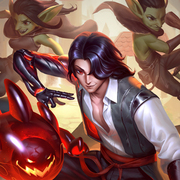
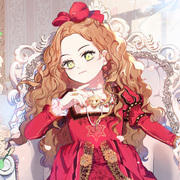
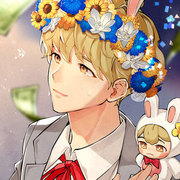
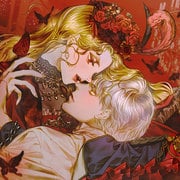
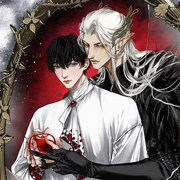
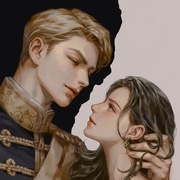

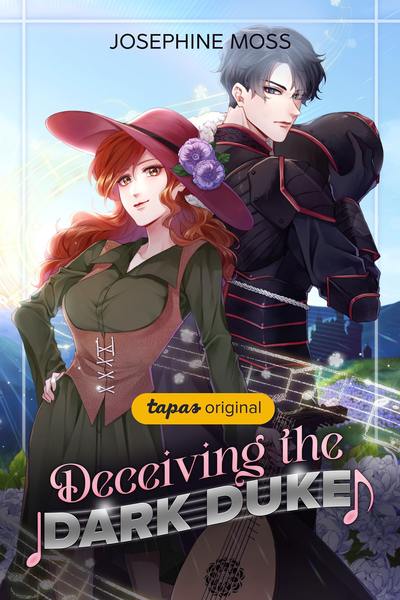
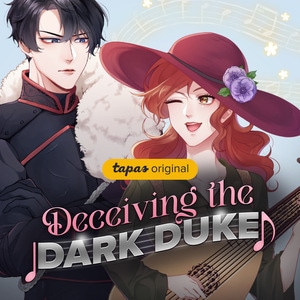
Comments (10)
See all